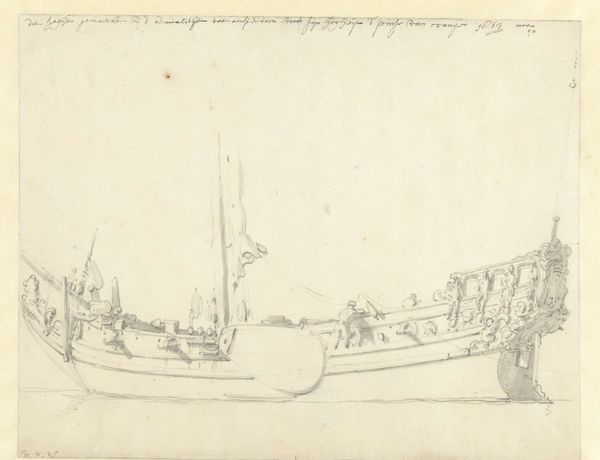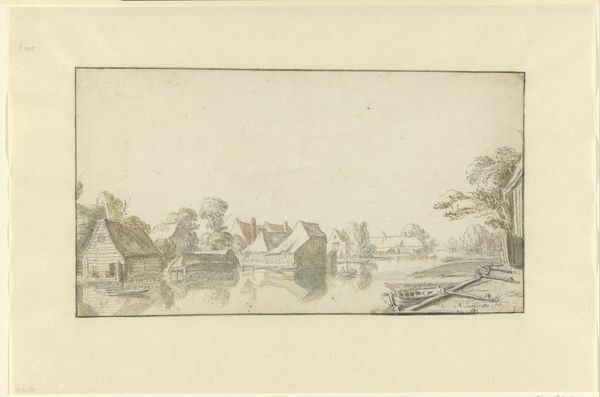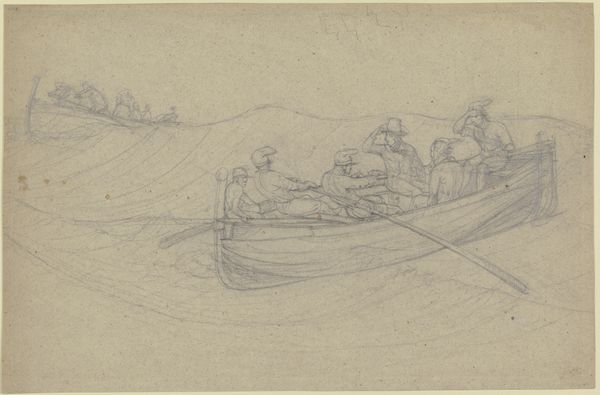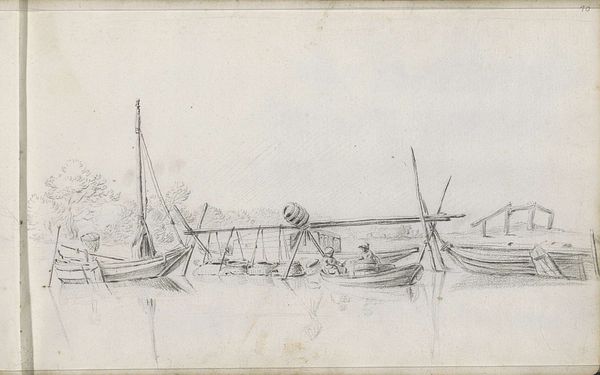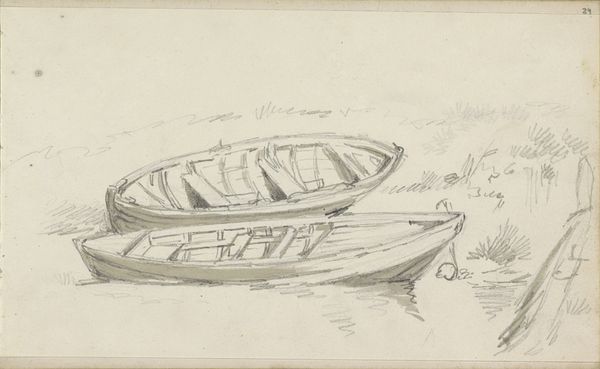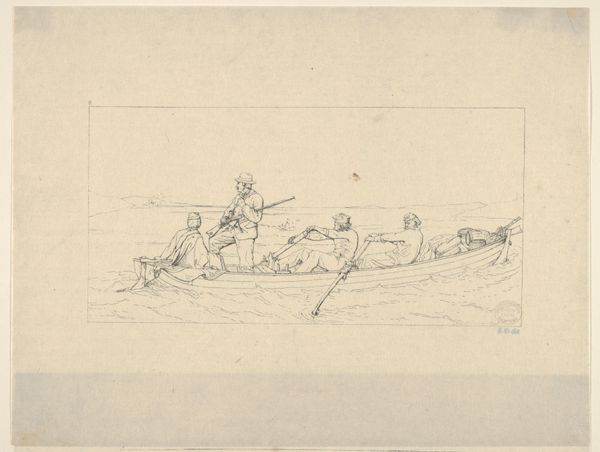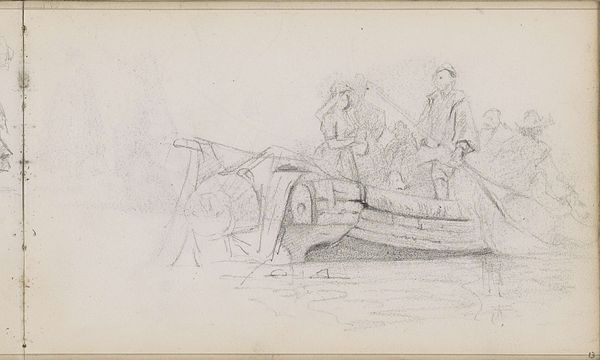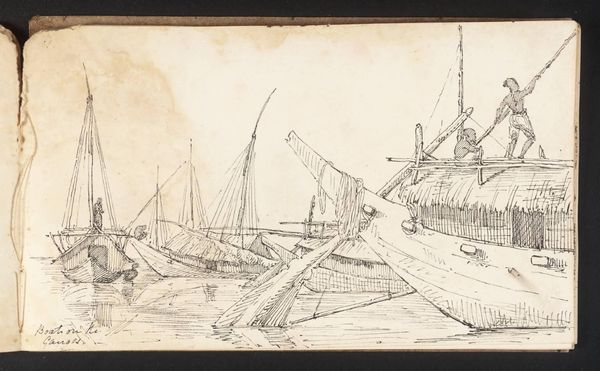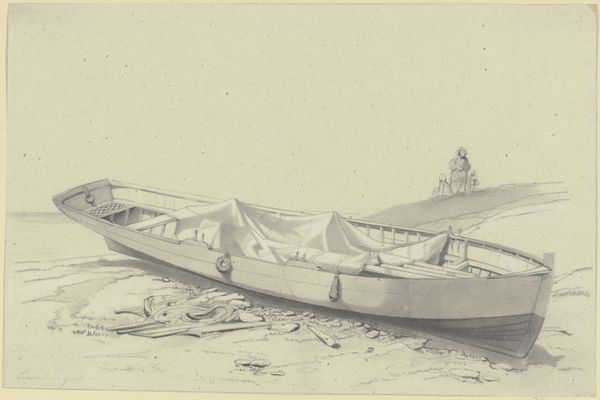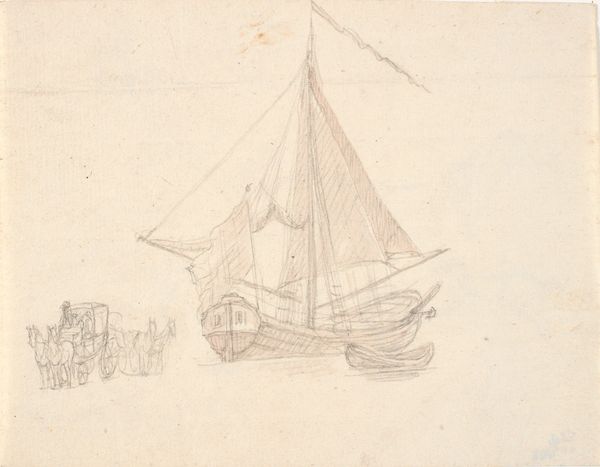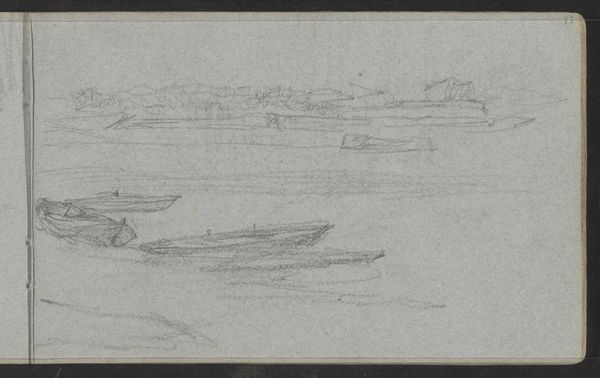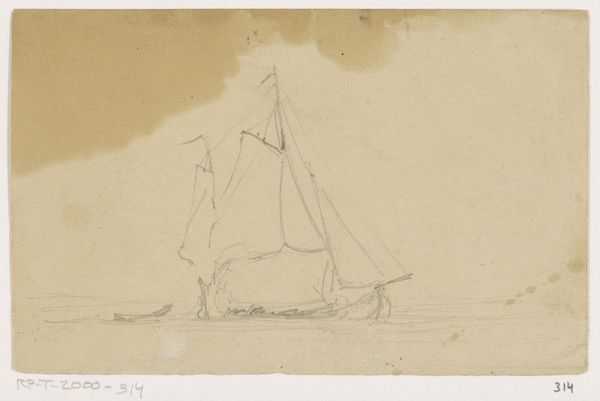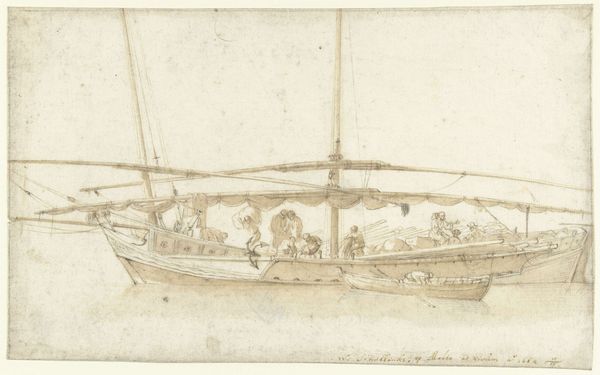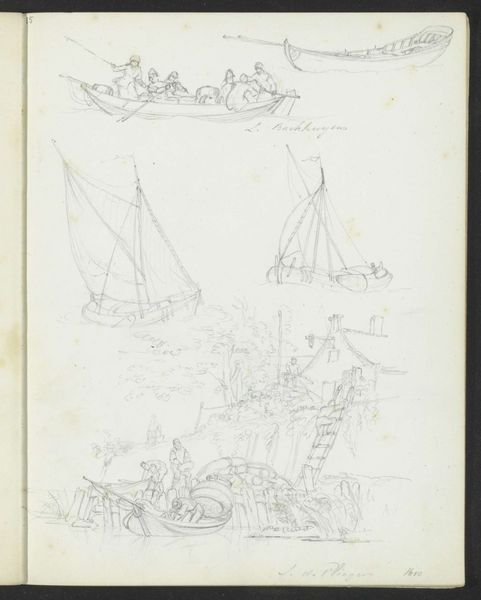
drawing, paper, ink, pencil
#
portrait
#
drawing
#
16_19th-century
#
landscape
#
figuration
#
paper
#
ink
#
romanticism
#
pencil
Copyright: Public Domain
Curator: Here we have Alfred Rethel's "Tyroleans in Einbaumen," a pencil and ink drawing held here at the Städel Museum. Editor: It feels almost like a fleeting thought captured on paper. The figures are so lightly rendered, they might vanish in a puff of smoke, like a memory fading at the edges. Curator: Absolutely, that Romantic spirit. The subject is a journey by boat, but it's more about the feeling of transit, the connection between people and nature, wouldn't you say? You see the pencil strokes indicating ripples on the water – and even a suggestion of movement on their garments. But it's all paper, pigment, graphite dust; mundane stuff transformed through skilled hands. Editor: Precisely. And when you consider the social context, what does this scene represent materially? We see them using these boats. How were those crafted, what resources were consumed in making the boats, in sustaining this scene? The clothing they have looks quite well made; do you think this would be representative of their actual living conditions? Curator: It does open that Pandora's Box. Rethel isn’t necessarily documenting reality so much as offering a lens through which we can romanticize and reflect upon it. Maybe these are Tyrolean merchants on their way to a new city. The labor behind it isn't his immediate focus, but those very pencils in his hand, what of those materials? From wood grown and milled somewhere, graphite formed under who knows what pressure in the depths of the earth. I wonder what journey THEY took to his hands? Editor: Yes, tracing those lines back reveals so much of the hidden cost that idealized beauty so often conceals. Curator: Exactly, by recognizing this, you highlight that connection: this very tangible exchange across water, time, and ideas that defines Romanticism. I find myself wanting to imagine what stories each of those Tyroleans hold. Editor: It encourages one to pause, to reconsider the things we overlook and their profound stories embedded in labor, resources, and lives. Curator: Well said! Rethel might've wanted that same thing. Thanks for sharing that with me!
Comments
No comments
Be the first to comment and join the conversation on the ultimate creative platform.
